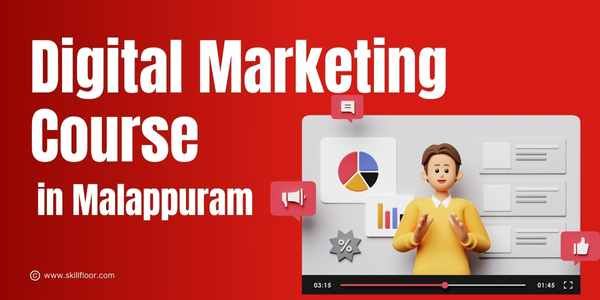The Future of Brand Reputation Management: Emerging Trends and Technologies
Discover emerging trends and cutting-edge technologies that will shape the way specialists protect and enhance brand images. Stay ahead of your brand's success.

Brand reputation management is an indispensable facet of modern business strategy. It's not merely about maintaining a positive image; it's about safeguarding the trust and credibility upon which businesses thrive. In today's dynamic digital landscape, where information travels at lightning speed, the art of managing brand reputation has never been more crucial. The challenge lies in the ever-evolving nature of this landscape, with emerging trends and technologies continually reshaping the rules of the game.
The Current State of Brand Reputation Management
The landscape of brand reputation management has evolved significantly in recent years, primarily due to the digital revolution. In the current state of affairs, businesses face a constant challenge in safeguarding their image amidst the rapid spread of information on the internet. Traditional approaches to reputation management, while still relevant, are no longer sufficient in the face of social media, online reviews, and instant global communication. Brands are under constant scrutiny, making it crucial for companies to have a comprehensive understanding of their current reputation and the tools needed to maintain or enhance it. As we delve into the future of reputation management, it's essential to acknowledge the complexities and demands of the present digital age.
Emerging Trends in Brand Reputation Management
Data-driven Insights
In the ever-evolving landscape of brand reputation management, one of the most significant trends shaping the future is the utilization of data-driven insights. With the abundance of digital information available today, businesses are increasingly harnessing the power of data analytics and artificial intelligence (AI) to gain a deeper understanding of their online reputation. By analyzing customer sentiments, tracking online mentions, and examining user behavior, companies can make more informed decisions regarding their brand image. Data-driven insights allow reputation management specialists to identify potential issues before they escalate and capitalize on opportunities to enhance their brand's perception. This trend represents a fundamental shift from intuition-based strategies to evidence-based decision-making, providing a more robust foundation for managing and improving brand reputation.
Real-time Monitoring and Social Listening
In an era where news and opinions spread like wildfire on social media, real-time monitoring and social listening have become indispensable tools for brand reputation management. Brands now recognize the importance of actively monitoring online conversations, reviews, and mentions as they happen. Real-time monitoring enables swift responses to emerging issues, enabling companies to address concerns promptly and mitigate potential damage to their reputation. Social listening tools and platforms enable specialists to gain valuable insights into customer sentiments, identify trends, and adapt their strategies accordingly. By staying attuned to the pulse of online conversations, reputation management specialists can maintain a proactive approach, ensuring that their brand's image remains aligned with customer expectations.
Proactive Reputation Building
Reputation management is no longer solely about damage control; it has evolved into a proactive endeavor. In brand reputation management focuses on taking proactive measures to build and bolster a positive brand image. Companies are increasingly recognizing that waiting for a reputation crisis to strike is not an optimal strategy. Instead, they are actively working to shape public perception through purposeful actions and communication. This proactive approach involves showcasing the brand's values, ethical practices, and contributions to society. By consistently demonstrating transparency, authenticity, and a commitment to customer satisfaction, businesses can establish a strong foundation of trust with their audience. Reputation specialists are at the forefront of guiding companies in this transformation from reactive to proactive reputation building, helping them create lasting positive impressions and maintain a resilient brand image.
Technologies Shaping the Future of Reputation Management
Artificial Intelligence (AI)
Artificial Intelligence (AI) is rapidly becoming a cornerstone of modern brand reputation management. Its applications are wide-ranging, but two critical areas where AI plays a pivotal role are sentiment analysis and predictive modeling.
Sentiment analysis leverages AI algorithms to monitor and analyze public sentiment surrounding a brand in real-time. It scours social media, online reviews, and news articles to gauge public perception. By understanding the sentiment, whether positive, negative, or neutral, companies can proactively respond to issues and trends. Predictive modeling, on the other hand, harnesses AI to forecast potential reputation threats and trends based on historical data and current events.
Additionally, AI-powered chatbots and virtual assistants are transforming customer interactions. They offer immediate responses to customer inquiries, manage feedback, and provide 24/7 support, enhancing the overall customer experience.
Blockchain for Trust and Transparency
Blockchain, most famous for its association with cryptocurrencies like Bitcoin, holds immense promise for brand reputation management in terms of trust and transparency. It operates on a decentralized ledger, which means that once information is recorded, it cannot be altered without consensus from the network.
One significant application is in enhancing transparency within supply chains. Brands can use blockchain to track the journey of their products from source to consumer, providing customers with real-time visibility into product origins and authenticity. This can combat counterfeit goods and bolster trust.
Furthermore, blockchain can play a crucial role in verifying online content. As misinformation and fake news continue to pose threats to brand reputations, blockchain can be employed to verify the authenticity of news articles, social media posts, and reviews, adding another layer of trust in the digital realm.
Augmented Reality (AR) and Virtual Reality (VR)
Augmented Reality (AR) and Virtual Reality (VR) are revolutionizing brand reputation management by offering immersive experiences. AR overlays digital information onto the real world, while VR creates entirely immersive digital environments.
In the context of reputation management, AR can be used to enhance customer experiences. For instance, customers can use AR apps to visualize how a piece of furniture would look in their living room before making a purchase, creating positive brand interactions.
VR takes immersion a step further by enabling customers to step into a virtual representation of a brand's world. Companies can use VR to showcase their products or services in an engaging and memorable way. For example, a travel agency might offer virtual tours of vacation destinations.
Several forward-thinking brands have already embraced AR and VR as reputation-enhancing tools, creating unique and memorable experiences that resonate with customers and strengthen their brand image.
The Human Element in Reputation Management
Emphasize the role of authentic communication and brand values:
In the world of brand reputation management, one constant remains: the irreplaceable value of authentic communication and staying true to your brand's core values. In an age where consumers are increasingly discerning and socially conscious, maintaining transparent and genuine communication is paramount. Brands that consistently align their messaging with their values not only build trust with their audience but also weather crises more effectively. Authenticity resonates with customers on a deeper level, fostering a sense of loyalty and connection.
Discuss the importance of employee advocacy in reputation management:
Beyond official corporate communication, an often underestimated aspect of reputation management is employee advocacy. Your employees are some of your brand's most influential ambassadors. Encouraging and empowering them to advocate for the brand can have a significant impact on reputation. When employees believe in the brand's mission and values, they become genuine advocates, sharing positive experiences and insights with their own networks. This can enhance your brand's credibility and reach, as well as help in shaping a positive reputation both internally and externally.
Highlight the impact of personal branding for executives and experts:
The personal brands of executives and industry experts can have a profound impact on a company's reputation. People want to connect with real individuals who demonstrate expertise and authenticity. Executives and experts who actively build and maintain their personal brands can help humanize their organizations, making them more relatable and trustworthy. By sharing insights, thought leadership, and engaging with their audience on social media, these individuals can not only boost their personal reputation but also positively influence the perception of the entire organization. It's a symbiotic relationship where a strong personal brand reinforces the corporate brand's credibility.
The human element in reputation management is a crucial aspect that often differentiates successful brands from others. Embracing authenticity, leveraging employee advocacy, and nurturing personal brands all contribute to building a stronger, more resilient reputation in today's dynamic business landscape.
Preparing for the Future: Recommendations for Brand Reputation Specialists
-
Stay Informed: Continuously monitor industry news, blogs, and publications to keep up with emerging trends and technologies.
-
Embrace Data Analytics: Develop proficiency in data-driven tools and analytics to gain actionable insights into brand reputation.
-
Invest in Social Listening: Utilize advanced social listening tools to monitor online conversations and sentiment in real-time.
-
Proactive Strategy: Shift from a reactive to a proactive reputation management strategy, focusing on building a positive image.
-
Leverage AI: Explore AI-powered sentiment analysis and chatbots for improved customer interactions and insights.
-
Understand Blockchain: Familiarize yourself with blockchain technology for enhancing transparency and trust in brand operations.
-
Explore AR and VR: Investigate the possibilities of augmented reality (AR) and virtual reality (VR) for immersive brand experiences.
-
Prioritize Authentic Communication: Maintain open and authentic communication with stakeholders, aligning with brand values.
-
Employee Advocacy: Encourage and empower employees to be advocates for the brand, both online and offline.
-
Personal Branding: Recognize the importance of personal branding for executives and specialists as they represent the brand.
-
Continuous Learning: Invest in ongoing professional development to adapt to evolving challenges and opportunities in brand reputation management.
In the brand reputation management, staying ahead of the curve is paramount. Emerging trends and technologies are reshaping the way we perceive and manage brand image. From data-driven insights and real-time monitoring to the integration of AI, blockchain, and immersive technologies, the future of reputation management is dynamic and promising. Embracing these changes, while upholding the principles of authentic communication and brand values, will be the key to success. As brand reputation specialists, it's our responsibility to adapt, innovate, and continue learning in order to navigate this exciting future and ensure the enduring positive perception of the brands we serve.





























































